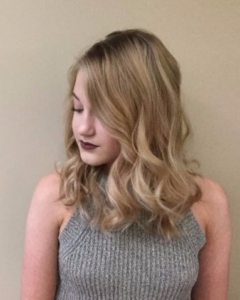Unrealistic Social Media Portrayals May Contribute to Body Dissatisfaction
In today’s culture, social media has begun to dominate even more of our lives, and its influence can quickly turn negative, according to a new study that focuses specifically on the effects of Instagram.
Macquarie University and the University of New South Wales both researched the relationship between time spent on Instagram and body image. The study examined 350 Australian and American women. The finding of the study revealed that even 30 minutes on the social media app can “make women fixate negatively on their weight and appearance,” according to The New York Post. Additionally, the participants displayed dissatisfaction about their own bodies after looking at “fitspo” images and idolized celebrities.
While these results come as no surprise, it can still be difficult to see how much those photos directly affect us. It is important to be mindful that what is portrayed on social media is not necessarily true. Not only does it negatively affect our mental health, but it also perpetrates the unrealistic body standard that society presents.
Constantly scrolling through “perfect” photos from friends, celebrities and models can leave you feeling very negatively about yourself. It’s human nature to compare yourself to others, and to feel envious or jealous of what someone else has. With the rise of social media, it becomes so much easier to do so. Not only do we face everyone we physically encounter during the day, but we also face the entire world, as they present themselves on social media.
This presentation is false. Despite how “perfect” someone’s life may appear, everyone has their own issues and struggles. Choosing to present our best self is normal; everyone desires to receive approval and admiration from others.
The combination of a false presentation of a perfect life with the behavior of comparing yourself to others is a formula for detrimental damage. So next time you scroll, think twice about what you believe.
You can help change the conversation on Instagram. Post an unfiltered selfie with a paragraph-long caption about what makes you feel confident in your own skin using #NEDAselfie. We’ll regram a select few submissions—just be sure to use #NEDAselfie with every post!
Filter out false images of “perfection” by following body positive accounts like @neda, @bodyposipanda, @iskra, @bingeeaterconfessions, @transfolxfightingeds, @nalgonapositivitypride, and more.
Instagram has taken direct action to make their platform safer for all users. Check out their Privacy and Safety Center to review community guidelines, security tips, and information about reporting worrisome posts.
Anna is a recently-retired ballerina, trying to use her experience to bring awareness and help others. She is excited to work with NEDA as an intern after her own recovery from an eating disorder. Anna is currently pursuing a degree in psychology.





